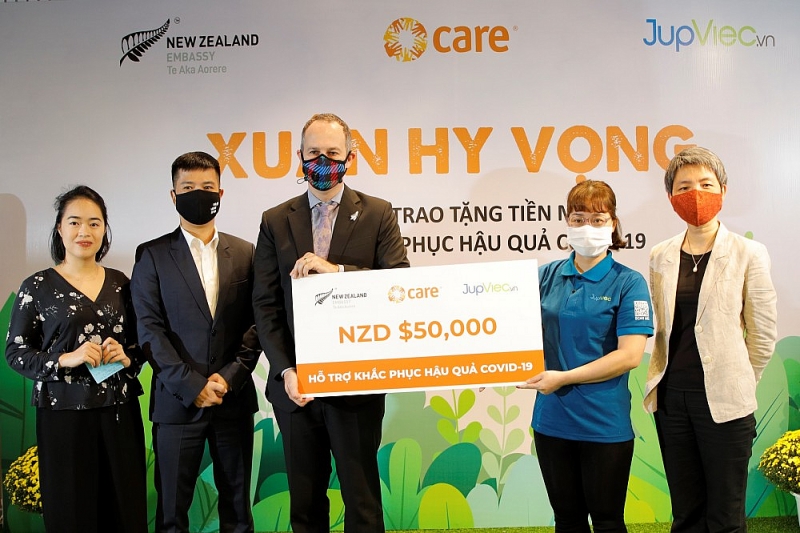
New Zealand Embassy and CARE provide financial support to female workers to bounce back better from COVID-19
Latest
 |
| This is a practical initiative to help ease the economic impacts of COVID-19 on Ho Chi Minh City, Binh Duong, Hai Phong and Da Nang migrant workers and their families. (Photo: CARE) |
The partnership between the New Zealand Embassy and CARE International in Viet Nam supports workers in the informal economy to ease their financial stress and strengthen their resilience during the pandemic.
“This project demonstrates the strong partnership between New Zealand and Viet Nam,” said New Zealand Chargé d’Affaires Joseph Mayhew. “This is a practical initiative to help ease the economic impacts of COVID-19 on Ho Chi Minh City, Binh Duong, Hai Phong and Da Nang migrant workers and their families, who are among the most economically vulnerable groups during the pandemic”.
Over the last year the pandemic and the uncertain recovery prospects have aggravated the already precarious livelihoods of informal workers, and put their coping mechanisms to the test. The cash assistance will help cover overdue rents, settle debt, attend to medical needs, pay for children’s tuition, among other immediate financial stresses. In addition, the initiative provides workers with knowledge and skills in financial management to support their financial decision-making in uncertain times, and financial well-being in the longer term.
According to the United Nations Assessment of the socio-economic impact of COVID-19 in Viet Nam has been uneven. Female-headed households of informal sector workers, together with ethnic minority households, showed the slowest rates of economic recovery.
The General Statistics Office of Viet Nam’s latest statistics have also revealed that although the labour market is starting to recover, it has not reached the pre-pandemic levels and the number of those in informal employment increased in 2020 after years of continuous decline, reaching 20.9 million workers in the last quarter of 2020.
“We believe that supporting female informal workers is supporting those among the hardest hit by the pandemic, but also those at the forefront of economic recovery. Their resilience and micro-entrepreneurship are vital to a robust recovery that is inclusive and equitable”, said Le Kim Dung, Country Director, CARE International in Viet Nam.





















